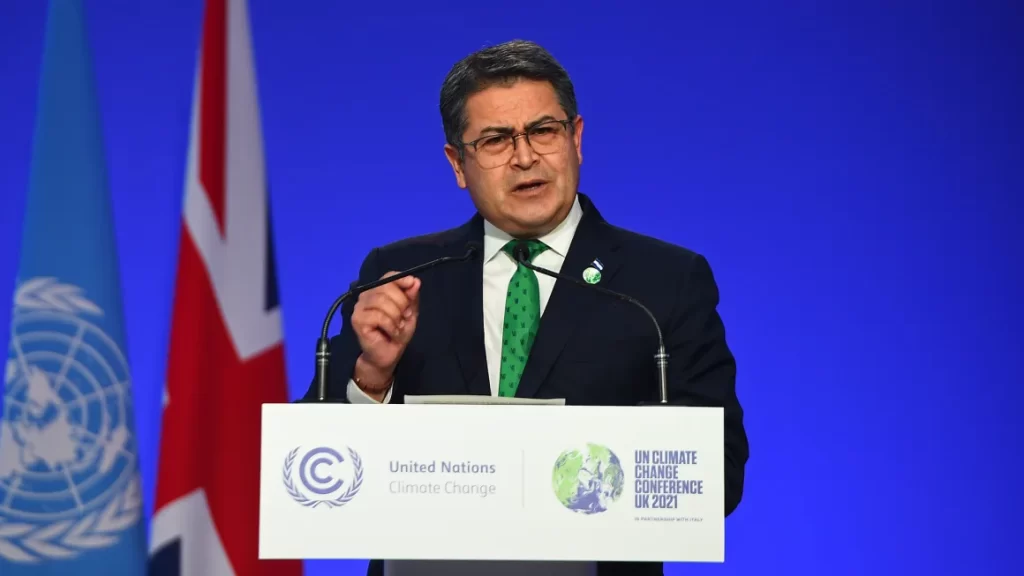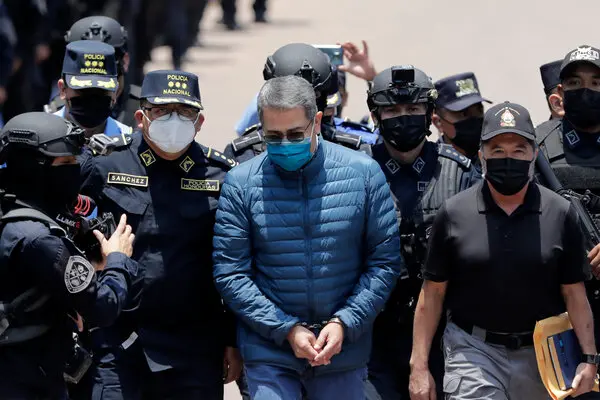In a landmark ruling that underscores the far-reaching consequences of political corruption and drug trafficking, former Honduran President Juan Orlando Hernandez has been sentenced to 45 years in prison by a US judge. The sentence, which also includes an $8 million fine, comes after Hernandez was found guilty of three drug trafficking charges in March by a New York jury.

Hernandez, who served as Honduras’ president from 2014 to 2022, has consistently denied the charges against him. Even at his sentencing on Wednesday, he maintained his innocence, claiming to be “wrongly and unjustly accused.” However, the evidence presented during his two-week trial in Manhattan federal court painted a damning picture of high-level corruption and collusion with drug cartels.
Prosecutors accused the 55-year-old former leader of conspiring with drug cartels to facilitate the movement of over 400 tons of cocaine through Honduras en route to the United States. In exchange, Hernandez allegedly received millions of dollars in bribes, which he used to fuel his political ascent in Honduras.
The Justice Department’s case against Hernandez was particularly striking, alleging that he “protected and enriched the drug traffickers in his inner circle” while in office. Prosecutors claimed he used his executive power to support the extradition of certain drug traffickers who threatened his grip on power, while assuring others who paid him that they could remain in Honduras.

Furthermore, the conspiracy allegedly involved members of the Honduran National Police, who were tasked with protecting cocaine shipments as they moved through the country. This level of institutional corruption led US Attorney General Merrick Garland to describe Honduras under Hernandez’s leadership as a “narco-state” where violent drug traffickers operated with virtual impunity.
Hernandez’s extradition to the United States in 2022 marked a significant moment in the fight against transnational drug trafficking and political corruption. His conviction and sentencing send a powerful message about the reach of US law enforcement in combating international drug networks and the accountability of even the highest-ranking officials.
This case highlights the complex interplay between politics, law enforcement, and organized crime in Central America. It also raises questions about the effectiveness of US drug policies in the region and the challenges of combating deeply entrenched corruption in partner nations.
As Honduras grapples with the fallout from this high-profile case, the international community will be watching closely to see how the country moves forward in addressing systemic corruption and drug trafficking. The sentencing of Juan Orlando Hernandez serves as a stark reminder of the devastating impact of narco-politics on governance, security, and the rule of law in vulnerable nations.



